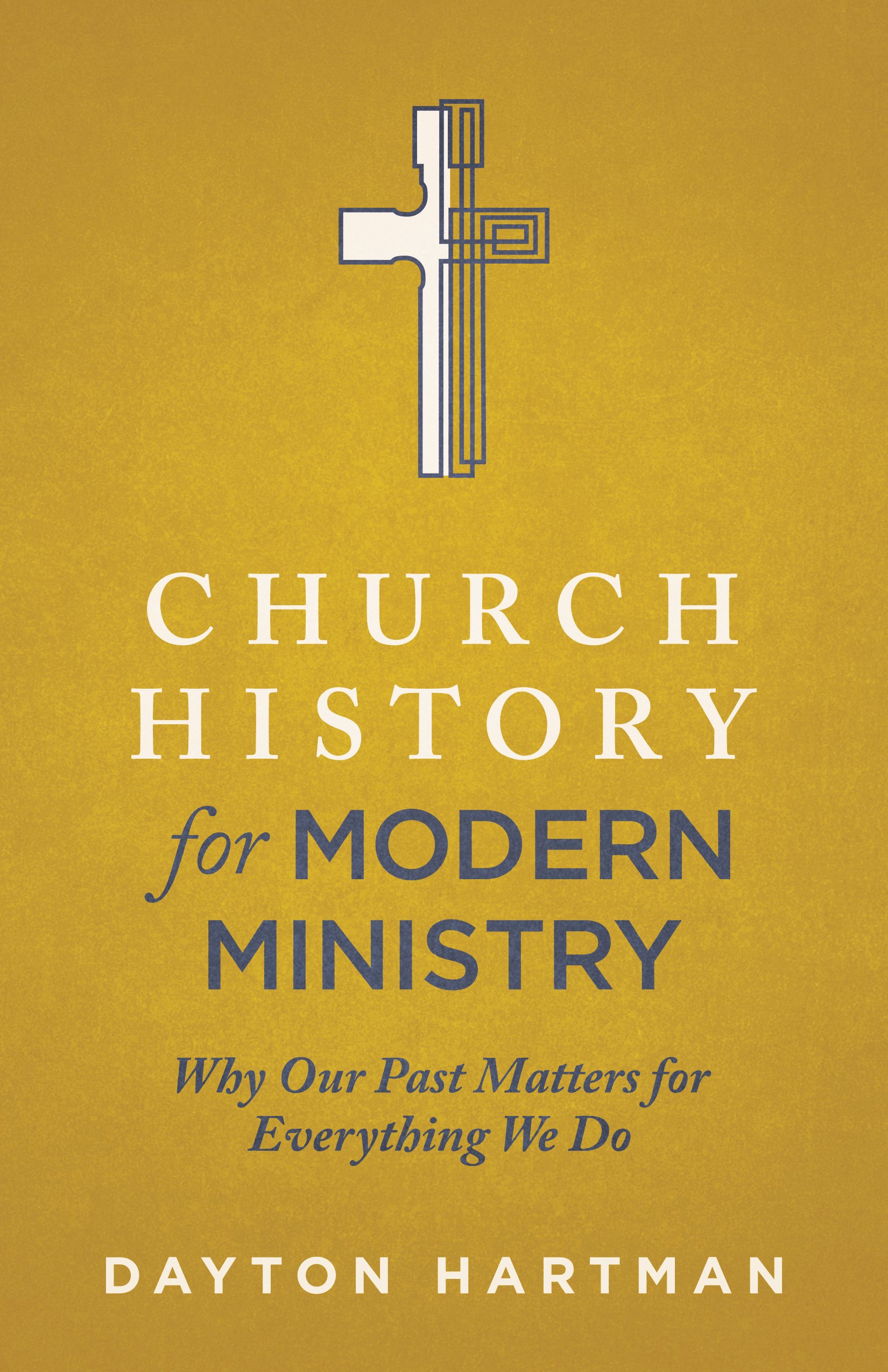Reviewed by Andrew Ballitch
About the Author
Dayton Hartman is pastor of Redeemer Church in Rocky Mount, North Carolina. He holds a PhD in church and dogma history from North-West University (South Africa).
Table of Contents
Chapter 1 – Back to the Future
Chapter 2 – Creed and Creeds
Chapter 3 – Imitating Christ
Chapter 4 – Preaching and the Cultural Drift
Chapter 5 – Christians and Culture
Chapter 6 – Yesterday, Today was the Future
Recommended Reading – Where to Begin
Appendix 1 – Frequently Asked Questions
Appendix 2 – A Guide to Creeds, Confessions, and Catechisms
Summary and Review
Dayton Hartman argues that “pastoral ministry is maximally effective only if carried out in light of lessons from our history” (3). In his clever, informal, and accessible style, Hartman recounts the years it took for him to arrive at this realization. There are dangers inherent in ignoring the past and benefits to knowing history when it comes to ministry. Hartman mixes entertaining anecdotes from his own experience and his familiarity with the two-thousand-year breadth of church history to build his case.
Chapter 2 paints creeds in an overwhelmingly positive light, which is refreshing coming from a Baptist pastor. They serve as “orthodox guardrails for theologians and pastors,” protecting the church from heresy (14). Confessions, on the other hand, detail the specifics of a tradition or denomination’s theology. One result of the minimization of creeds and confessions in evangelicalism today is the rampant spread of old heresies. Thankfully, Hartman’s book is not a rehashing of the cliché “those who fail to learn from history are doomed to repeat it,” but he introduces it here and it is certainly fitting. Many pastors today, ignorant of church history, preach heresy. But Hartman does not stop with pointing out problems, he also helpfully suggests solutions and, as one with pastoral experience, wisely encourages change slowly and with great care. First, pastors should familiarize themselves with the ecumenical creeds. Second, mention the creeds and their value in your sermons, bible studies, and conversations. Third, add the recitation of creeds to corporate worship.
Chapter 3 makes a clarion call for discipleship through relationship and catechesis. The practices of the early church provide a stark alternative to American individualistic Christianity. Discipleship happens in a community of faith and intense relational mentoring, from discipleship of children and new converts to preachers. Chapter 4 is an appeal for contextual and apologetic preaching. The church fathers and Protestant reformers show the effect of communicating in an understandable way. Further, they exemplify contending for the faith in a hostile world, an arrangement in which American Christians increasingly find themselves. Chapter 5 highlights the pastor’s role in cultural creation. Christians tend to approach the prevailing culture in one of two ways: hide or cheaply mimic. Examples abound. However, Christ is the transformer of culture and it is imperative that ministry leaders take the lead role in understanding, making, and encouraging culture. After all, culture is simply what humans produce when they interact with each other and God’s creation. Chapter 6 concludes the book with Hartman’s articulation of the past bringing clarity to the future. He vividly summarizes this way,
you would be foolish to attempt to preach doctrine that is not in accord with historic orthodoxy, but how can you know historic orthodoxy without knowing history? It is madness to lament the failure of your church to produce healthy disciples, unless you are willing to explore and use the practice and methods of discipleship that have yielded great success for nearly two millennia. It is stubborn foolishness to debate how to winsomely defend Christian truth claims without consulting the examples of biblically consistent and culturally relevant apologetic efforts from church history. It is a vain exercise to fret over the demise of the prevailing culture, unless you are willing to join with those in the past who sought to create good culture and to reform sub-biblical culture. Finally, it is a pitiful dereliction of your pastoral duties if you allow your church members to live in fear of what might come in the future, if you fail to remind them of what God has done in the past among his people (57).
Direct, pithy, and insightful. This is what the reader of Hartman’s Church History for Modern Ministry can expect. And the extras alone are worth the price of the book. The end of each chapter includes action steps, reflection questions, and an annotated list of recommended reading. The recommended bibliography at the end of the book is divided over general, early church, reformation, and American church history with breakdowns according to beginner, intermediate, and advanced resources. Appendix 1 includes pastoral answers to three frequently asked questions: What happened at the council of Nicaea? Did John Calvin murder Michael Servetus? When did Christians become Trinitarian? Finally, Appendix 2 provides recommendations and advice for usage of creeds, confessions, and catechisms. The book is extremely practical.
This is a great resource for pastors who wonder about church history’s relevance for ministry. It will serve those pastors looking for an introduction and starting point for historical literacy. It will also fortify those who are already sensitive to the importance of church history and equip with practical aids and pastoral wisdom.
Andrew Ballitch is Associate Pastor at Hunsinger Lane Baptist Church in Louisville, Kentucky and a PhD candidate in church history and historical theology at Southern Baptist Theological Seminary.
